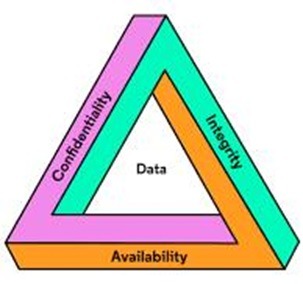
Ensuring Data Security in Distribution: Protecting The Most Sensitive Information
The distribution of goods and services relies heavily on the seamless flow of data. Whether it is manufacturing, logistics, or retail, data plays a pivotal role in ensuring efficiency and competitiveness. However, with great data comes great responsibility. Protecting sensitive data in the distribution process is not just a best practice; it’s a necessity. In this article, I will delve into what data security in distribution means, identify the most sensitive data in this context, and discuss best practices for safeguarding it.
Understanding Data Security in Distribution
Data security encompasses the practices and technologies used to safeguard sensitive information throughout its lifecycle, from creation to disposal. In distribution, this means protecting everything from customer addresses and purchase details to inventory levels and shipment routes. The core principles of data security are the CIA triad:

- Confidentiality: Ensures prevention of unauthorized access, keeping sensitive data under control.
- Integrity: Protecting data from unauthorized modification or corruption, preserving its accuracy and authenticity.
- Availability: Guaranteeing authorized users can access data when needed, preventing disruptions to operations.
Sensitive Data in the Distribution Chain:
Various types of data require vigilant protection within a distribution network:
Customer Data: Names, addresses, contact information, and purchase history can be misused for phishing scams, identity theft, and targeted advertising.
Financial Data: Bank account details, credit card numbers, and payment information are prime targets for hackers seeking financial gain.
Internal Data: Operational details like inventory levels, shipment schedules, and supplier contracts can be exploited to disrupt operations or gain a competitive edge.
Intellectual Property: Proprietary formulas, product designs, and marketing strategies are valuable assets vulnerable to industrial espionage.
Best Practices for Sensitive Data Security
Ensuring the security of this sensitive data requires a multi-layered approach:
Access Control: Implement granular access controls, granting different levels of access based on user roles and needs. Regularly review and update these controls.
Data Encryption: Encrypt data at rest and in transit, rendering it unusable to unauthorized parties even if intercepted.
Vulnerability Management: Regularly scan systems for vulnerabilities and patch them promptly to prevent exploitation.
Security Awareness Training: Educate employees about cybersecurity best practices to minimize human error and insider threats.
Incident Response Plan: Have a clearly defined plan for responding to data breaches and minimizing damage. Regularly test and update this plan.
Compliance: Familiarize yourself with industry regulations and data privacy laws, ensuring your data handling practices comply.
Technology and Innovation
Emerging technologies like blockchain and data loss prevention (DLP) tools can further enhance data security in distribution. Blockchain’s distributed ledger technology provides tamper-proof data provenance, while DLP tools help identify and prevent unauthorized data exfiltration.
Continuous Vigilance
Data security is not a one-time undertaking but an ongoing process. Staying abreast of evolving threats, adapting measures accordingly, and fostering a culture of data security awareness are crucial to safeguarding valuable information throughout the distribution chain. By prioritizing data security, distribution companies can protect themselves from financial losses, reputational damage, and operational disruptions, ensuring the smooth flow of goods and information.
I hope this article about data security in distribution has been helpful to you. I will continue to post information related to warehouse management, distribution practices and trends, and the economy in general. If you are interested in learning more, click the link, and we will call you.
There is a lot of relevant information on our channel. Check this video on Why Kroger, Publix & Walmart Are Forcing Distributors To Dex.


Sorry, the comment form is closed at this time.